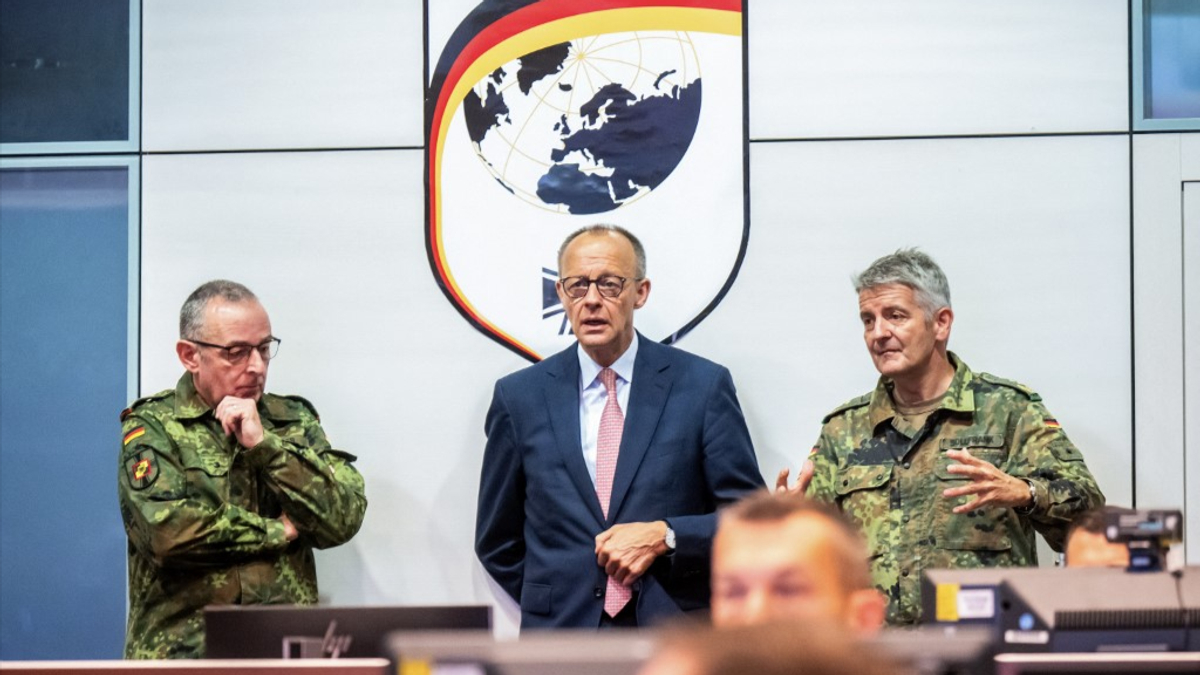Russia could carry out a limited attack on NATO territory at any time, though a decision to act would depend on the West’s posture, a senior German military official warned.
“If you look at Russia’s current capabilities and combat power, Russia could kick off a small-scale attack against NATO territory as early as tomorrow,” Lieutenant General Alexander Sollfrank told Reuters in an interview.
Follow our coverage of the war on the @Kyivpost_official.
Sollfrank, who heads Germany’s joint operations command, said any such strike would likely be “small, quick, and regionally limited,” since Moscow remains heavily engaged in its war against Ukraine.
He also echoed NATO’s earlier warnings that Russia could rebuild enough strength to launch a larger assault on the 32-member alliance by 2029 if its rearmament efforts continue.
Russian President Vladimir Putin – who had denied plans to attack Ukraine just a week prior to the February 2022 full-scale invasion – has also repeatedly denied plans to attack NATO, claiming that Russia’s full-scale invasion of Ukraine was meant to defend itself from what he called “Western expansion.”
Sollfrank said Russia’s air force still has strong combat capacity, and its nuclear and missile forces remain intact despite setbacks in Ukraine.
While the Black Sea Fleet has suffered heavy losses, other naval forces remain largely unaffected, he said. Russia’s army has taken major casualties, but Moscow still plans to increase its total number of troops to 1.5 million.

Other Topics of Interest
Russia Restricts Mobile Internet for Returning Citizens to Counter Drone Threat
Moscow introduces a 24-hour “cooling-off period” for SIM cards used after returning from abroad, claiming the move will help prevent drones from using Russian mobile networks.
“Russia has enough main battle tanks to make a limited attack conceivable as early as tomorrow,” Sollfrank said, though he added there was no sign such an operation being prepared.
Sollfrank said any Russian decision to attack NATO would depend on three main factors: Moscow’s military strength, its track record, and its leadership.
“These three factors lead me to the conclusion that a Russian attack is in the realm of the possible,” he said. “Whether it will happen or not depends largely on our own behavior.”
He added that Moscow’s hybrid tactics – including drone incursions and propaganda – are part of what Russia calls “non-linear warfare,” designed to intimidate and destabilize opponents before any direct confrontation.
“Their goal is to provoke NATO, test its responses, and spread fear,” Sollfrank said. “It’s warfare by intimidation.”
NATO on alert as reports warn Russia may attack within years
Western intelligence reports say Russia might try to attack a NATO country within the next five to seven years. Many officials worry that Russia could use the excuse of “protecting Russian-speaking people” to send troops into the Baltic states.
Michael Cecire, a defense and security researcher at RAND, a Washington-based think tank that often does studies for the Pentagon, recently warned a bipartisan group of lawmakers that Russia, according to a number of assessments by European allies, “may be able to launch an attack against NATO within the next five to 10 years.”
Because of these fears, NATO held Steadfast Defender 2024, its biggest military exercises since the Cold War. More than 90,000 troops from across the alliance took part, along with dozens of warships, aircraft, and tanks.
NATO’s Secretary General, Mark Rutte, warned that the Western defense alliance would respond with a “devastating” blow to any attack by Russia.
“If anyone were to miscalculate and think they can get away with an attack on Poland or on any other ally, they will be met with the full force of this fierce alliance,” Rutte told reporters on a visit to the Polish capital in March.
